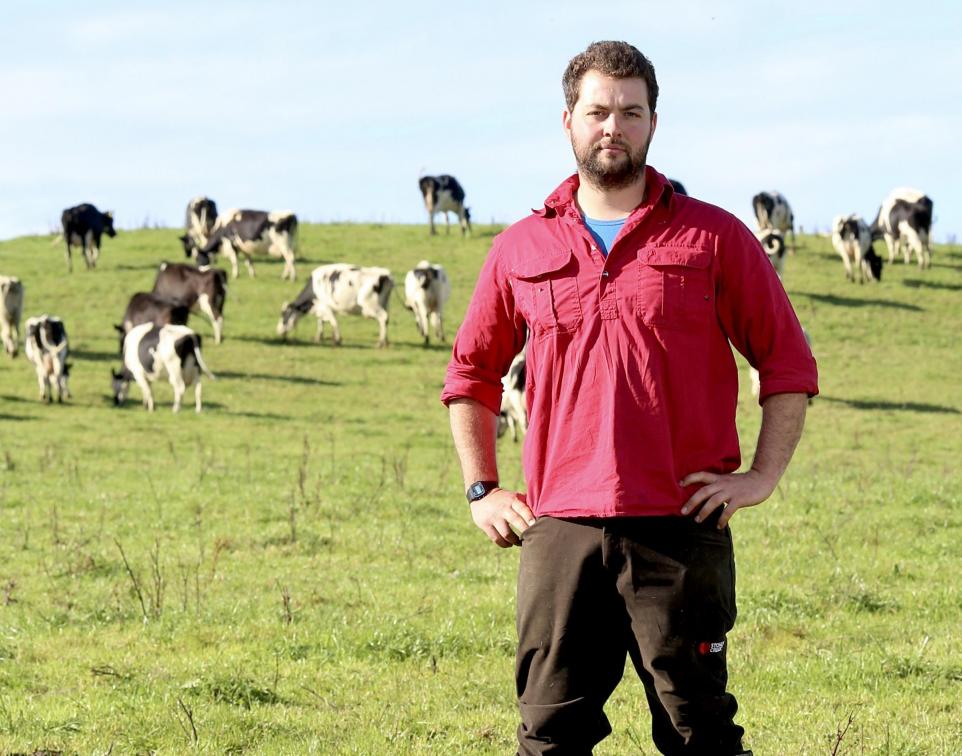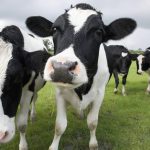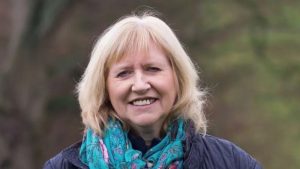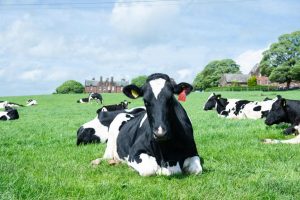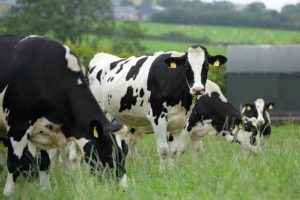
He worked in New Zealand before returning home to Ceredigion to farm with his parents, Richard and Stephanie, where they ran a flock of 900 ewes and 100 dairy cows.
While overseas, he not only gained valuable experience of farming but an important preview of how the economics of farming might shape up in a post-Brexit Wales against the backdrop of the free trade deals that would follow.
“In New Zealand you either need 3,500 ewes to make a living or 200-250 cows. I couldn’t get to that number of sheep at Maesnewydd, and indeed I didn’t want to as sheep are not a passion of mine, but 200-250 cows is something I could and wanted to achieve,’’ Jâms says.
Although his father’s loyalty to sheep is greater than that of his son’s, those numbers and the post-Brexit world of declining subsidies, international trade and cross-border tariffs convinced him of the value in expanding the herd and scaling down sheep numbers.
The family is now milking 150 cows and, with 200 dairy replacements in the system and a 44-point rotary milking parlour all set to be installed, expansion will gather pace in the next two years.
What the final size of the herd should be is currently a subject of debate between Jâms and his parents.
“My parents reckon 300 but I think 400 is achievable so I reckon we might settle somewhere around 350 but it will depend on how many cows the farm can carry without us needed to farm the land intensively,’’ says Jâms.
Ewe numbers in the flock of Welsh Mountain sheep now stand at 400. “Dad insists that we keep a few, but they can be his interest not mine!’’ laughs Jâms.
The family farms at Maesnewydd near Bow Street, a 249 hectare (ha) improved upland farm which rises from 200 feet to 1,000.
Richard and Stephanie were early adopters of seasonal milking, converting to spring block calving in 1981 and introducing New Zealand genetics into the herd of British Friesians.
Jâms is the ninth generation of his family to farm at Maesnewydd, returning home after studying agriculture at Reading University and working in New Zealand.
He has two older sisters and a younger brother who have followed different paths. “It was only me who was daft enough to learn how to milk when we were growing up because my sisters and brother worked out that if they did they would have to help with the milking!’’ he recalls.
Milking is currently in a 15-aside parlour but this will be replaced by the rotary.
Once this is installed on its new site cows will have access to a bigger milking platform – the current 40ha restricts cow numbers but with the new set-up the platform will increase to 138ha.
Calving is from mid-March, all outdoors and over a 12-week period but with the aim of condensing it into 10 weeks going forward.
The herd yields an annual average of 4,500 litres/cow at 4.2% butterfat and 3.6% protein with milk sold to South Caernarfon Creameries.
The sheep flock lambs in February with 85% of saleable lambs sold to a dealer by mid-July without any supplementary feed.
It is a low-labour system but with losses under 5%. “I have never pulled a lamb in my life,’’ says Jâms.
He puts that down to years of recording with 20% of the bottom performers removed from the flock annually. “It has made a huge difference,’’ he adds.
Returning to west Wales took some readjusting to but joining the NFU Cymru Next Generation Group has helped, with friendships and opportunities to get involved in the industry off-farm.
Looking to the future, Jâms sees good opportunities for the next generation of farmers.
“I opted for dairy because there is a good future in it. There is a massive global demand for dairy.’’
